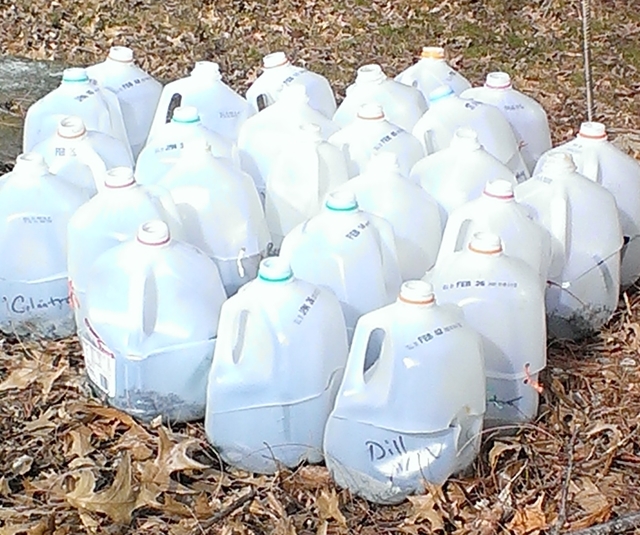Epsom Salt for Rose and Bloomers
You may have heard that Epsom Salt is a great, safe, effective and economical garden amendment for use on your flowering plants. But what is Epsom Salt and why is it so popular among rose gardeners?
The main ingredient in Epsom Salt is magnesium sulfate which is an important soil additive for healthy plant life. It allows plants to take in nutrients like phosphorus and nitrogen and enhances the capability of the soil. It assists in the creation of chlorophyll which is used by the plant to convert sunlight into food.
Benefits of Using Epsom Salt on Roses
The benefits of Epsom Salt on plants are many including that it’s organic, it’s gentle on plants and it’s cheap!
So if you're growing roses, here are some specific ways it helps with plants:
- Improves rose flower blooming.
- It enhances a plant’s green color.
- It helps plants grow bushier.
- Greatly improves a plant’s ability to produce fruit and flowers.
- Assists in seed germination and gives a stronger start to seedlings.
- It’s safe, and there is little danger of problems from overuse.
- It doesn’t build up in the soil and it won't have buildup that will clog the root cells of your plants. In fact, Epsom salt can be used for potted plants that have developed a salt accumulation.
The Versatility of Uses
Another big advantage of Epsom Salt is its versatility in the way it can be used. You can sprinkle Epsom Salt over a large garden area, you can use it to circle around plants or you can add a solution of Epsom Salt to a garden sprayer.

Here are some specifics.
On a New Rose Garden
If you're creating a new rose garden bed, sprinkle up to one cup per 100 square feet and work it into the soil. This is especially helpful if your soil is coarse or sandy.
For new rose bush plants, soak the bare-root rose bush in a bucket of 1/2 cup of Epsom Salt per gallon of water overnight to revitalize the root system.
Then to plant a new rose bush, mix in one tablespoon of Epsom Salt to each rose plant and mix in with the soil.
Other Ways to Use Epsom Salt for Rose Gardening
Apply a foliar spray of one tablespoon per gallon for each foot of shrub height in the Spring when leaves appear and then again when flowering.
Above is the garden sprayer I use. It's not too heavy and the pump sprayer works really well. I also use it on my hosta leaves for a magnesium boost.
Another method is to apply Epsom Salt early in the morning to your existing roses at a rate of one tablespoon per foot of plant height. You can repeat this every two weeks. You can dissolve the Epsom Salt in water or mix it straight into the soil.
To Help with Transplant Shock
Sometimes it's necessary to move a rose bush, especially if it's not getting enough sunlight. Did you know that using Epsom Salt can reduce transplant shock?
Plants can become weak and wither right after transplanting, and Epsom Salt can help reduce that transplant shock to the plant roots. The solution to use for this is one cup of Epsom Salt per 100 square feet.
~~~~~~~~~~
It's unusual to find an organic soil amendment that is so inexpensive yet works so well. So care for your roses by incorporating an Epsom Salt treatment for fuller, bigger rose blooms!

Have You Tried Winter Sowing??
If you haven't tried winter sowing, you're in for a treat. This method is especially good for sowing herbs. Winter sowing is basically sowing seeds in the bottom of milk jugs in the winter, setting the milk jugs outside for the winter and leaving them there until the seeds germinate in the Spring.
For our article containing detailed information about Winter Sowing, click here.
To watch our 30 minute video on how to winter sow, click here.
This post may contain some Amazon Associate links meaning that I will get a small compensation at no expense to you if you purchase something from this blog.







.png)






No comments:
Post a Comment
Note: Only a member of this blog may post a comment.